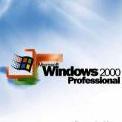Cixert last won the day on August 25 2023
Cixert had the most liked content!
About Cixert

Profile Information
-
OS
Windows 2000 Professional
Recent Profile Visitors
6,892 profile views
Cixert's Achievements
94
Reputation
-
I have a pretty old computer saved many years in the closet that I had to take out to perform some tests. It has the I440BX chip (20th century) and Windows XP. The last time I tried to update the BIOS I looked for an updated version based on the motherboard name, but when trying to flash it I gave me the error "The program files part number does not match with your system". Desperate I flash it equally the surprise is that this works, but when restarting the message "NTLDR is missing press key to continue" appears to me. So I returned to the previous BIOS version and the problem disappeared. Now, in 2024 I have learned that the BIOS updated version is not sought by the motherboard name. This must be sought by the motherboard identification name that give programs such as Aida64, since I do not download a BIOS version for a motherboard review that is not admitted. So I have installed the BIOS correct version. The surprise is that the message also appears to me "NTLDR is missing press key to continue". And if I return to the previous version of the BIOS it works correctly. Any idea what reason is it? The strange thing is that the message appears in Spanish, when the BIOS is in English. How is it possible? Is it in any way detecting that Windows XP is in Spanish? I have tried other hard drives and they do work, the problem only happens with the installed hard drive. Motherboard Model: DTK PRM-0080I E1 ID motherboard: i440BX-w977-2A69KD1DC-00 BIOS download https://theretroweb.com/motherboards/s/dtk-prm-0080i-e1#bios BIOS right 80e1-308.bin (v. 3.08) BIOS bad: 80e1-314.bin (v. 3.14) It is for 2A69KD1KC (rev RC or newer )
-
The forum is not letting me put some links, fortunately write yes I can. Nor does it let me edit if I add new links. It was good to correct it.
- 31 replies
-
- MBR
- hard disk MBR
-
(and 3 more)
Tagged with:
-
This version is older than "Paragon HFS for Win v.10.5.0.95", the MAC system reader, also installs GPT on Windows XP with drivers updated to version 10.5.0.95 and seems to fix many issues from the previous version. I didn't know about this one, thanks. What version is build based?
-
I will tell you a little about the experience that I have had in recent months with this MBR data disk connected by USB. The partitions on the 5TB hard drive have remained unchanged: 1- Primary NTFS --> 1.31 TiB --> Cluster 8 KiB 2- Primary exFAT ---> 1.17 TiB ---> Cluster 8 KiB 3- Primary FAT32 --> 91.2 GiB ---> Cluster 8 KiB 4- Extended FAT32 ---> 683 GiB ---> Cluster 16 KiB 5- Extended FAT32 ---> 289 GiB ---> Cluster 32 KiB 6- Extended FAT32 ---> 937 GiB ---> Cluster 32 KiB I have worked with 4 operating systems, Windows 2000-XP-Seven-10 For the first month I was continually copying and pasting files into the exFAT partition and unzipping and compressing ZIP files. I mainly used Windows XP and Windows Seven, but more Windows Seven. The problems in this exFAT partition were continuous, the errors that I had read in an article that criticized this file system were reproduced. Suddenly files and folders were missing for no reason, changing the exFAT partition to read-only mode and I had to recover the files with CHKDSK. On more than one occasion, Windows Seven and 10's CHKDSK were unable to repair the file system, issuing an error that said something like "unable to repair." Surprisingly, the solution was to use Windows XP's CHKDSK, then everything worked again. Without being so serious, file system errors also frequently happened to me on the NTFS partition. Furthermore, the exFAT partition suddenly disappeared several times, and the only method to recover it, without a copy of the partition table, was the DiskGenius program. Undoubtedly at that moment I was thinking about converting the exFAT partition to FAT32 and saving myself from problems. I also doubted whether it had been a good idea to format the NTFS partition with an 8 KiB cluster, since I could not find an explanation for the errors. Subsequently, I spent a couple of months experimenting with all the disk defragmentation programs, testing all the partitions with them. The file disappearance errors continued when copying and pasting files, but not in the defragmentation process. I left the defragmenters theme and started working on other themes. Weeks and months passed and then I realized that I have not problems again, neither with the NTFS partition nor with the exFAT partition, I continue copying and pasting files, but not in such quantity as at the beginning. I did not have any problems with FAT32 partitions, of course. I have read a solution to have these files larger than 4 GiB. I don't know if I'll dare to try it. I see that there are more systems than I thought, FAT32+, FAT32x...
- 31 replies
-
- MBR
- hard disk MBR
-
(and 3 more)
Tagged with:
-
Years ago I found that Windows Seven was not capable of reading MBR disks larger than 2 TB, while Windows 2000-XP and Linux distributions from 2009 onwards were capable. I don't remember which Windows Seven version I installed, whether it came with Service Pack 1 or not. I think that this one did not have it and that the problem was solved with Service Pack 1 . Windows 10 reads +2TB MBR hard drives without problems. Regarding the GPT +2TB disks, I have not experimented with them again, in my last comments I reported problems such as that the 6 TB disk was not read by USB adapters if it was formatted with SATA and it was not read by SATA if it was formatted with USB. Furthermore, the partitions on the 6 TB GPT hard drive were not read by XP if these were formatted with the Windows 10 disk manager, but these were read by XP if these were defragmented in Windows 10 with third-party tools. https://msfn.org/board/topic/181911-read-gpt-hard-disk-on-windows-xp/?do=findComment&comment=1251210 And here the culprit that will not dedicate my time to anything else, the different disk defragmentation utilities have so many differences from each other that researching them took me several months. Then I got involved with something else, of course... The fact is that during this time I have worked with MBR on a 5 TB hard drive so as not to have problems, although it also has a specific post about problems. Regarding the sector and cluste size, here we have the @jaclaz's final statements https://msfn.org/board/topic/184904-problems-with-mbr-hard-disk-5-tb/ So I have not experimented with GPT again and I seem to read that the conclusion you reached is that GPT in XP cannot work with partitions larger than 2 TiB. Is this so? Can you confirm it or is it pending further verification? What file system do you format the partitions? @Dave-H FAT32 PARTITION LIMITS (format with MiniTool Partition Wizard) Cluster 4 KiB = 0.29 TiB / 300.99 GiB / 308213.76 MiB Cluster 8 KiB = 0.58 TiB / 600.99 GiB / 615413.76 MiB Cluster 16 KiB = 1.17 TiB / 1203.99 GiB / 1232885.76 MiB Cluster 32 KiB = 2.35 TiB / 2407.99 GiB / 2465781.76 MiB Cluster 64 KiB = 4.70 TiB / 4815.99 GiB / 4931573.76 MiB Cluster 128 KiB = 9.40 TiB / 9631,99 GiB / 9863157,76 MiB Cluster 256 KiB = 18.81 TiB / 19263,99 GiB / 19726325,76 MiB *Just I exceeds only 3.4 GiB the limit for cluster 16 KiB and problems arose. *Values from cluster 64 kib are not given by MiniTool, these have been calculated by the previous amounts and I have not verified their correct operation. *You have to take into account the limits punctured by @jaclaz for the maximum partition size of 16 TiB with sectors of 4096 bytes and 2 TiB for 512 bytes sectors. (real calculation 15,9999999962747097015380859375 TiB & 1,9999999995343387126922607421875 TiB) exFAT PARTITION LIMITS (format with MiniTool Partition Wizard) Cluster 4 KiB = 1.00 TiB / 1025.00 GiB / 1049610.24 MiB Cluster 8 KiB = 2.00 TiB / 2049.00 GiB / 2098176.00 MiB Cluster 16 KiB = 4.00 TiB / 4097.00 GiB / 4195328.00 MiB Cluster 32 KiB = 8.00 TiB / 8193.00 GiB / 8390656.00 MiB Cluster 64 KiB = 16.00 TiB / 16385.00 GiB / 16779264.00 MiB Cluster 128 KiB = 32.00 TiB / 32769.00 GiB / 33556480.00 MiB Cluster 256 KiB = 64.00 TiB / 65537.00 GiB / 67110912.00 MiB ...and so on to cluster 32768 KiB (32 MiB) = 8192 TiB *Values from cluster 32 KiB are not given by MiniTool, these have been calculated by the previous amounts and I have not verified their correct operation.
-
Hello, I have a group of collaborators in Telegram to whom I have proposed a Google form as a method to collect the personal data of each one, without greater technical claim. I think it is easy to manage and free of charge is the best option. However, among non -expert people I have found the opposition to use the tool because it is from Google. It seems that there is a fear that Google can take the data and sell them. I am not in favor of using Google tools that give problems such as Play Store or Google Services, but in this case I value that it is the best option and that the data is protected by law. I even think there is less possibility that the data is stolen from Google than to other online forms. Do you see it in the same way? Would you recommend another online form, simple, free and easy to manage? They are asking if there are forms on free web pages made with open source. I believe that this does not exist and if it exists it would be totally insecure, but just in case I ask. I don't want to make a website and create my own database. Thank you.
-
Windows Seven updates list to install offline: In this post I list the latest updates for the Windows 7 operating system (NT 6.1) in its final versions. If there was any mistake, please comment. Internet Explorer and .net Core is not included. There are 2 types of general updates. Free updates that are facilitated until January 2020, except for small exceptions, and ESU updates (Extended Security Updates) that are facilitated to the business environment in cumulative packages, prior economic payment until at least 2024 year. The following updates requested by Windows Update have been removed from the list because these are not necessary or cause problems: KB971033 (Update for Windows Activation Verification Technologies) KB2952664 (System compatibility update for migration to Windows 10) The list is shown in recommended installation order, although there are people who say it is better to leave the Cumulative Update Packages 2016 for the end. FREE UPDATES -Service Stack (SSU) SHA-2 compatible (KB4490628) (2019-03) -Service Pack SP1 (KB976932) -SHA-2 signature code (KB4474419) -Windows Update supports SHA-2 (KB3138612) -Platform update for SP1 (Direct 2D-3D, etc.) (2013-02-26) (KB2670838+KB2834140) -Cumulative Update Package 2016-05-17 (KB3125574) aka SP2 -Cumulative Update Package 2016-08-16 (KB3179573) -Mothly Rollup 2020-01-14 (KB4534310) (latest non-ESU) -Mothly Rollup 2020-01-31 (KB4539601) (complements 2020-01-14) Windows Journal, choose between: -Update Windows Journal vulnerability (KB3155178) (2016-05) -Remove components from Windows Journal KB3161102-v2 (2016-09) Windows Management Framework 3.0 (if installed) (PowerShell 3.0,WMI,WinRM,Management OData IIS Extension & Server Manager CIM Provider) -KB2823180 (2013-04) WMF 3.0 Update List shows Windows Update after installing all update packages: KB973688 (2011-07) Microsoft XML Core Services 4.0 SP2 KB2667402 (2012-07) Vulnerabilities in Remote Desktop KB2676562 (2012-05) Combined Security Update for Microsoft Office, Windows, .NET Framework, and Silverlight KB2698365 (2012-08) Windows Data Access Components Vulnerability KB2813347 (2014-09) Vulnerability in Remote Desktop Client KB2862330 (2014-01) Security for USB drivers KB2900986 (2013-11) Security for ActiveX killbits KB2984972 (2014-02) Remote Desktop Connection 7.1 Update KB3004375 (2015-02) Improve command line auditing (tmb included in KB3031432) KB3046269 (2015-04) Task Scheduler Vulnerability KB3059317 (2016-06) Microsoft Common Controls Vulnerability KB3156016 (2016-06) Microsoft graphics component security KB3159398 (2016-06) Security for Group Policy KB3161949 (2016-06) Security for WPAD Recommended List does not show Windows Update: KB917607 Install Winhelp32.exe (Help not supported error) KB2574819 (2013-09) DTLS protocol compatibility KB2592687 (2013-09) Remote Desktop Protocol (RDP) 8.0 Update KB2603229 (2011-10) Two 32-bit register values are incorrect in 64-bit version KB2667402 (2012-08) Terminal Server denial of service vulnerability KB2685811 (2012-11) Kernel-mode driver framework update version 1.11 KB2685813 (2012-11) Update User-Mode Driver Framework version 1.11 KB2729094 (2012-10) Segoe UI symbol font update KB2732059 (2012-09) Error cannot open an .oxps file KB2750841 (2012-11) IPv6 Preparation Update KB2761217 (2012-11) Add Calibri Light and Calibri Light Italic fonts KB2773072 (2014-09) Changes Windows 7 game rating systems KB2818604 (2013-04) Microcode update for AMD processors KB2835174 (2013-05) Incorrect disclaimer Product activation assistant in v. Polish KB2919469 (2014-02) Incorrect Canada country code KB2970228 (2014-10) New symbol of the Russian Ruble KB3006137 (2015-02) Change Lithuania currency symbol from Lithuanian litas (Lt) to euro (€) KB3064209 (2015-06) Intel CPU microcode update KB3102429-v2 (2016-03) Currency symbols Azeri Manat and Georgian Lari KB3184143 (2016-10) Remove ads from free Windows 10 For non-ESU customers only: KB3123479 (2015-05) Deprecated SHA-1 hash algorithm in root certificates KB3156019 (2016-05) Microsoft graphics component security ESU (EXTENDED SECURITY UPDATE) Servicing Stack Updates (SSU) Before proceeding update to the latest SSU stack version available. SSU 2022-09 (KB5017397) is required at least in 2023. For ESU customers only, choose between: -ESU MAK licensor (individual online) (KB4575903) -VANT-ESU licensor (multiple online-offline by volume) More info: https://learn.microsoft.com/en-us/troubleshoot/windows-client/windows-7-eos-faq/windows-7-extended-security-updates-faq https://www.dell.com/support/kbdoc/en-us/000184542/windows-7-extended-security-updates Latest ESU rollup package (published at least until 2024) Offline installation is compatible with all systems until last update in 2024: https://support.microsoft.com/en-us/topic/windows-7-sp1-and-windows-server-2008-r2-sp1-update-history-720c2590-fd58-26ba-16cc-6d8f3b547599 .NET FRAMEWORK RUNTIME Free updates: -2014-09 NET Security Update 3.5.1 (KB2894844) -.NET Framework 4.8 (ndp48-kb4503575) -2020-01 Update cumulative package quality and safety for .NET Framework for Windows 7 (latest free) ESU customers only: Search the Microsoft Update Catalog for the latest version, at least until 2024. https://catalog.update.microsoft.com/Home.aspx For example: 2023-11 Net Framework for Windows 7 (replace the date with the estimated one)
-
Thanks, but when I open NAPS2, select the TWAIN scanner type and proceed to scan, this program opens the interface installed with the driver. NAPS2 does not have its own interface to perform the scan.
-
I would like to know if there is any program that has its own interface to call the scanner drivers and scan documents or photographs with a scanner. Until now I know that it is possible with the particular interface provided along with the drivers by the scanner manufacturer. -But what happens if, for example, we have a scanner installed with the drivers correctly but the original interface does not work. There is also the VueScan program that has its own drivers and interface compatible with hundreds of scanners. But is it possible to install a scanner with the original or VueScan drivers and perform the scan with another program? I have tried with PDF file digitizer programs but all of these call the scanner driver interface itself.
-
I have checked C:\Windows\Logs\CBS\CBS.log to see the error cause "the update is not applicable to the equipment" when trying to install "Monthly Rollup update." CBS.log says "superseded" I see that every time a "Monthly Rollup update" is installed, the previous "Monthly Rollup update" disappears from the updates list performed in Windows 7. The same does not happen with "security only" updates, which continue to appear in the list of updates even if new versions are installed.
-
Thanks, I thought I had read on a website that it was the other way around. That link leads to the v3 download, I don't see that there is a v4 download for Windows Seven https://catalog.update.microsoft.com/search.aspx?q=kb4474419 Thank you. Do you know if the KB4539601 (2020-01-31) package is cumulative and replaces the KB4534310 (2020-01-14) package or if both packages must be installed? I do not remember if I have installed KB4534310 (2020-01-14), if I try to install this now says "the update is not applicable to the equipment"
-
Edit, the solution is here: Original post: Is there a post that tells the order to install update packages in Windows Seven Ultimate SP1? I install the packages in this order but Windows Update says that I have pending updates. What offline packages do I have to install to avoid pending updates? 1- Cumulative Update Package 2016 (KB3125574) aka SP2 2- SHA-2 (KB4474419-v3) 3- SSU with SHA-2 signing code (KB4490628) (SSU 2019-03) 4- SSU KB5017397 (SSU 2022-09). 5- Monthly Cumulative Update (not ESU) 2020-01-14 (KB4534310) (quality only) (latest non-ESU) 2020-01-14 (KB4534314) (security only) (latest non-ESU) Do I have to install both packages? Right now Windows Update says that I have 24 pending updates. All dated before 2018. What seems strangest to me is that an update is called SP1 (kb976932), although it is only 9.1 MiB
-
It is USB 3 and it is connected in USB 2 with external power supply. The problem usually happens when I delete a lot of small files. With medium sizes I have not seen a problem. It is as if this did not have time to write in the FAT or the MFT. I don't quite understand the Y cable. which Y wire? so that? Thanks.
- 31 replies
-
- MBR
- hard disk MBR
-
(and 3 more)
Tagged with:
-
Heh heh, I knew you would find the exception that proves the rule. Sorry to be so categorical, I want to make incremental copies, so after 4 TB I wanted 5 TB. In Spain I did not find any 5TB 3.5" disk. Even the large external drives I've seen have a 2.5" hard drive inside. I think that these days I have tried all the defragmentation programs and unfortunately I do not like any of them. I don't want to optimize the files on my hard drive, I just want to defragment and compact the free space like the Windows tool does. But all programs seem to insist on doing special things or just defrag or compact with fragmentation. It seems that none defragment and compact in less than 1 day. Maybe Deflagger but in 12 h. goes for 3% IObit Smart Defrag says to do it and fast, but then I check that it doesn't do what it says.
-
I'll try to do the comparison with Gdisk in a few days. Now I'm running other tests. "Paragon GPT Loader 10.5.0.95" actually installs the 8.0.1.0 drivers, the same as the original Paragon GPT Loader 8.0.1.0. However, I confirm that "Paragon HFS for Win v.10.5.0.95", the MAC system reader, also installs GPT on Windows XP with drivers updated to version 10.5.0.95 and seems to fix many issues from the previous version. The problem with the blue screen with Paragon GPT 8.0.1.0 on Windows XP SATA (no problem on USB hard disk) I have solved it by installing "Paragon HFS for Win v.10.5.0.95". Then, since I use FAT32 on the Windows XP partition, I have modified the registry HKEY_LOCAL_MACHINE\SYSTEM\CurrentControlSet\Services\gpt_loader Changing the ImagePath value: system32\DRIVERS\gpt_loader.sys by system32\DRIVERS\GPT_LO~1.SYS So I have rebooted and Windows XP has read the GPT HDD installed on the SATA port. I am writing and correcting the advances to work with GPT disks from Windows XP in this post and the next one: https://msfn.org/board/topic/181911-read-gpt-hard-disk-on-windows-xp/?do=findComment&comment=1249360 However, of course, I have a problem. The 6 TiB hard drive has 6 exFAT partitions but on Windows XP it is only able to read data from the first 2 partitions, which have more than 280,000 files. This happens with both, the Paragon GPT driver and the Windows 2003 driver. The only difference between these partitions, is that the ones Windows XP recognizes, have been defragmented with various programs since Windows Seven. On the other hand, I comment that when starting Windows XP "autochk" verifies the partitions that it later reads correctly and says that the ones it does not read are RAW. I also point out that CHKDSK from Windows XP does not work with exFAT partitions. And that no Windows operating system defrags exFAT partitions, so I have to use third-party programs. Regarding your comments about the limits, I say that there are no 5 TiB hard drives with 3.5", they are all 2.5". And that the limits on Logilink adapters are imposed by the firmware. From what I have been able to verify, Logilink is a brand located in Germany that does not really manufacture these adapters. The old adapters are made by a different manufacturer than the new adapters, although externally they appear the same.






